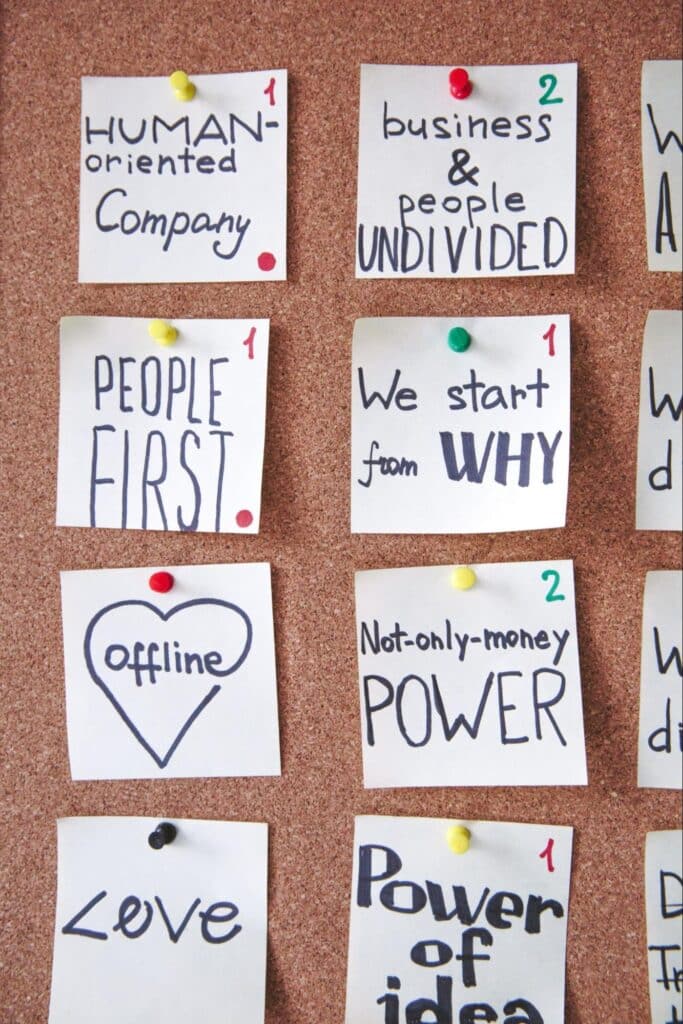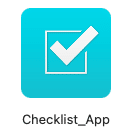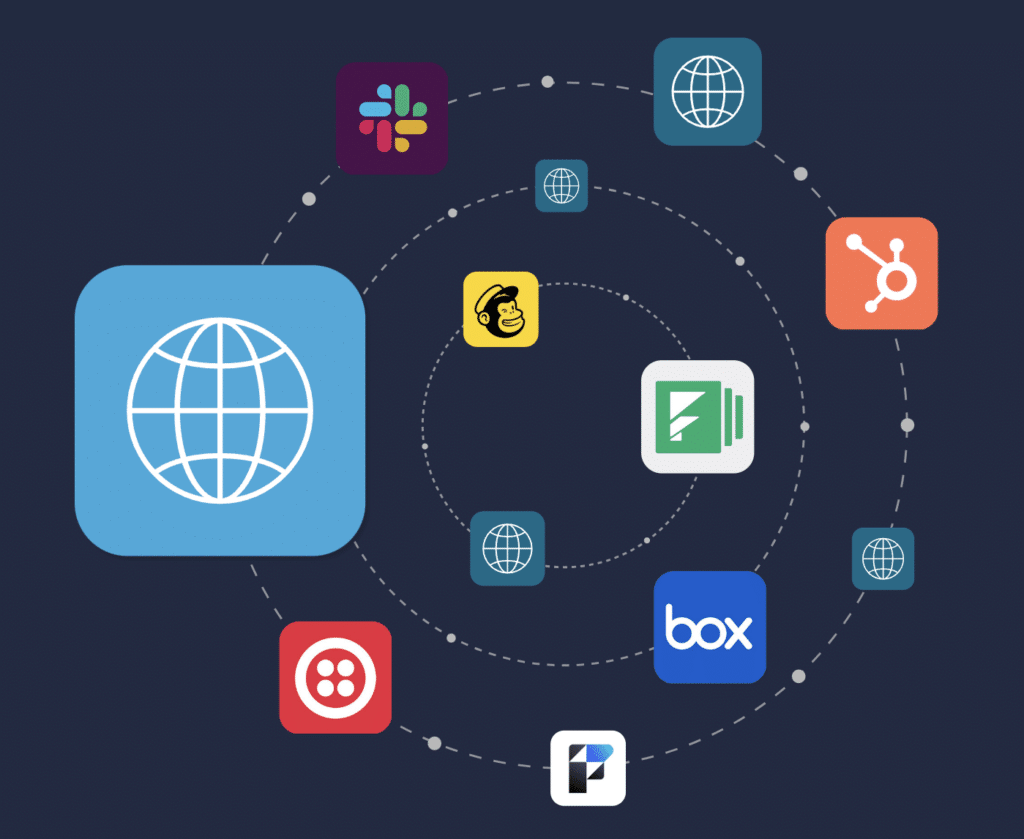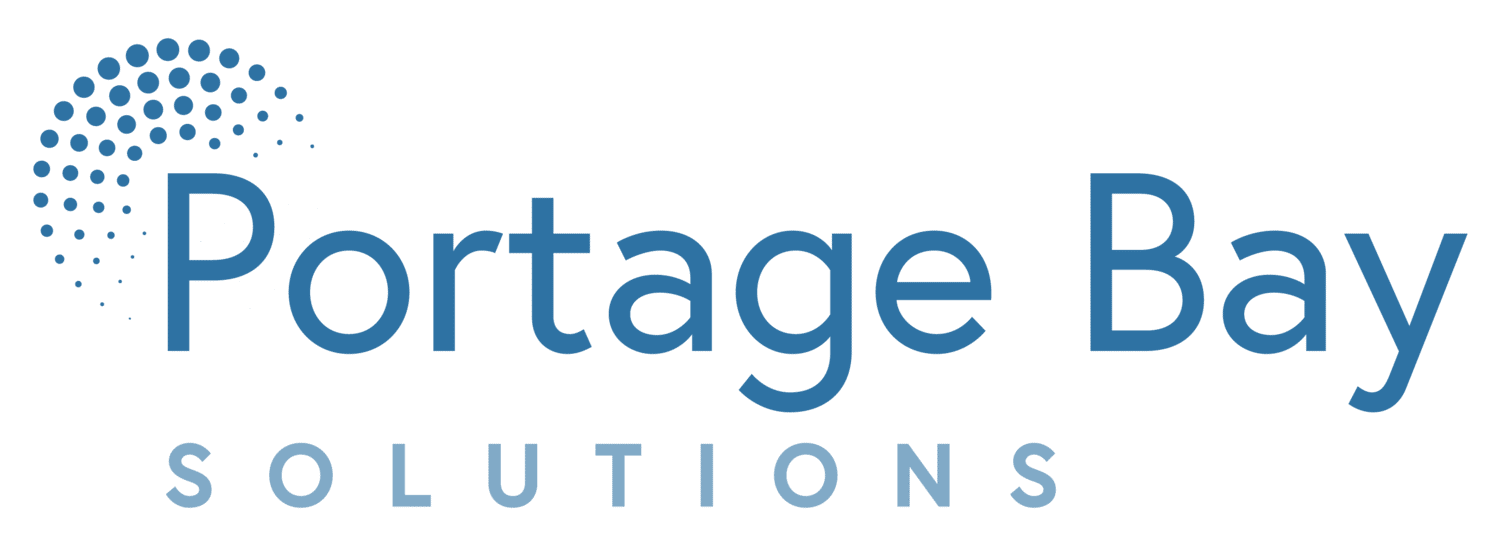In most cases being a good boss means hiring talented people and then getting out of their way.
Tina Fey
By now most of us have skimmed the articles about The Great Resignation, “quiet quitting”, and the push for better wages and benefits in all types of jobs. Some of the discussions take a pessimistic tone: “How can our businesses afford it?” “Whatever happened to loyalty?” “Can we continue to stay relevant?” “In my day we just buckled down and did the work.”
Other voices are speaking up, saying, “I’ve decided I won’t be devalued anymore.” “My time is too important for drudgery.”
Such shifts in the American workforce are profound and far-reaching. While the solutions might not be easy, broaching the topic is a step in the right direction. Post-pandemic life has brought a collective re-evaluation of what it means to stay relevant. As a society, we are more than employees. We are multi-faceted.
Of course we have professional goals, financial responsibilities and a wide range of practical and personal considerations that propel us through the workforce. But we also have families, hobbies and every-day life to attend to – events which often (too often?) intersect our work schedules and tasks.
Our Humanity Is Catching On

It’s been almost seven years since Professor Robert Kelly’s daughter, Marion, crashed his live TV interview with the BBC. In life before COVID, that moment was almost unimaginable. Most of us would have been mortified had our personal lives peeked into our work ones in such a public fashion.
Professor Kelly made the best of it then, embracing his unintended fame as the “BBC Dad”, and earlier this year tweeted updated family photos on the anniversary of the unlocked door.
Nowadays, Zoom has become so commonplace that the phrase, “You’re muted”, might possibly have surpassed Verizon’s nine-year catchphrase of, “Can you hear me now?” It’s no longer unexpected or unusual to see the tousled hair of a colleague’s toddler wobble through the lower edge of the computer screen, or to see your psychiatrist’s cat cross behind them on the table.
As a mother of five, who works from home, I love the humanity this awakening is bringing. In 2017, Professor Kelly understandably tried to nudge his daughter out of the room. I wonder if in 2023 he might feel comfortable lifting her up onto his lap instead, to let her wave at the audience before she skipped back to play.
Remember That Staff Are People, Too
There are positive shifts in other ways, too. It’s now becoming normal to keep work within your work hours – to not be expected to answer calls or emails when the workday is over. It is acceptable to fill your LinkedIn “gaps” with life events that occur outside of work such as raising a family, caring for a parent or taking a sabbatical.
Many work/life balance experts have long advised blocking off “non-work” times on your calendar as actual appointments and then treating them as such. It’s becoming acceptable to say, “I’m not available at 11am, but I can make a 2pm meeting instead.” No explanation is necessary.
As a member of Gen X, who cherishes a foundational essence of individuality gleaned from pivotal influences like The Breakfast Club, I surprisingly found myself tempted to brush off the vocal voices from the mainly Millennial and Gen Z crowds who are calling us to expand our thinking.
But I realize it’s because such idealism – that I much aspire to – doesn’t mesh with my own early workforce experiences in the corporate world. As I listen more, and work on shaking off my presuppositions, I’m finding these humanity-centered ideas and input refreshing, and achievable.

Remember That Established Norms Should Sometimes Change, and Do Anyway
It’s also a delightful discovery to see that even the idea of generational distinctions is being rethought. This excellent Business Insider article, “Why we all love to hate other generations”, explains how the Pew Research Center is quietly ending the tradition of using generational labels in its research, in favor of age cohort groupings instead. The author notes that, “… social scientists have long chafed at the idea of using generations to understand our changing culture, and there are numerous problems with over-deploying the generational framework.”
My blog post can’t tackle the larger workforce topics of equitable pay, favorable benefits, and family-friendly work schedules. But I asked some younger people I know for their input about small things that can make a big difference. “What are the little things that make a company good to work for? What are some small things that make a boss a good boss, versus a boss who is out of touch.”
Consider their replies below, then I’ll shift to talking about how small changes in the Claris FileMaker staff software that you’ve provided for your team can help job satisfaction in the same way, for everyone.

What Defines a Good Boss?
→ Do the Work with Us, a la Undercover Boss
The restaurant owners are really on top of not letting customers yell at staff. They expect good work from their workers, but they’ll just as soon kick a customer out for being disrespectful over issues. – H.H, 30, Kitchen Prep
Work the job with us – be there. Don’t just dictate missives from on high. – M.R., 25, Publications
Having great management is valuable. Someone that knows what they are doing, makes good choices, and that I can respect. I’ve definitely had managers where I’ve thought, “Man, they just have a fancy office to sit in and do nothing while I’m doing all the work and getting paid less.” – B.L., 22, Cashier & Stocker
Big respect for a boss who knows what their crew does and can do it themselves. – A.P., 31, Construction

→ Stay in Tune with Your Staff and Check In with Them Regularly
One of my preferred things is managers who make sure you take a break. Instead of having to figure out how to make it happen myself, they’ll say “Hey, go, I’ll get the spot covered”. – C.K, 21, Retail Associate
My coworkers treat me like an adult. I don’t have to ask anybody when to take a lunch break or if I can go to the bathroom. They trust that I am doing my job well and that I will ask for help if I need it. – R.B., 27, Chat Support
Create a community atmosphere among staff. Don’t allow a competitive one. Have potlucks, celebrate birthdays, take breaks for random and fun games. – A.H., 23, Hotel Reservationist
→ Talk with Your Staff, Don’t Make Assumptions, and Don’t Just Send Memos
People want direct and open communication. Don’t beat around the bush. Don’t have unspoken expectations. Approach things from a person-first rather than business-first perspective. Build the trust needed for people to know you aren’t gonna toss them out as soon as it’s convenient. – A.B., 39, Owner of a photography business
Don’t make reactionary decisions. Talk with your staff and get our input instead of reacting to rumors or insinuations. – K.J., 32, Legal Assistant
Provide good and bad feedback regularly, not just once a year, so staff can improve before it impacts their raise. A bad review should never be a surprise. – N.H., 40, Sales Representative
Correct me (in a professional way) when you see the problem happen. Don’t let things pile up. My manager talked to me about something I’d been doing wrong – but after three months because she hadn’t made it a priority to bring it up before then. By that time the wrong thing had become a pattern and it would have been much easier to shift to the right way if I’d known from the beginning. – K.Q., 27, Retail Associate

→ Make It Expected & Easy for Your Team to Provide Feedback, Then Listen to It
Let us be able to ask for what is needed, or provide our perspectives, without seeing us as going against the hierarchy. – A.C, 36, IT Support
We use our phones for communication, so incorporate apps into your process – such as for scheduling and payroll. But not ones where we have to give our cell numbers to everyone who works here (like WhatsApp). – G.M., 24, Warehouse Operations
Get feedback on and provide accessibility for disabilities and for staff who have ADHD or are Autistic. Not to check off legal requirements but because you care about the people who care about your company. – M.S., 29, Drugstore Associate

→ Document Procedures, Expectations, and Paths Forward
Document the procedures – it eliminates guesswork and prevents squabbles among staff. Let us have a say in those procedures, where you can. Give us a way to let you know if something is not working. – M.B., 32, Manufacturing
Have known job descriptions. Have known paths to achieving bonuses, raises, and higher positions. That helps prevent favoritism and unmet expectations. – L.P., 35, Engineering Inspector

→ Dust off Your Communication Style and Habits You’ve Acquired over the Years
Don’t fix it if it ain’t broke. If a process is working efficiently, and staff are happy with it, don’t change it up just because you want to try something new. Or at least talk with us first, to work out the details. – D.S., 40, Cargo Handler
Rethink your rules. Maybe you’ve done something in a certain way for twenty years. Why? Can it be revamped and updated? Let us give you input. – N.T., 26, Supply Clerk
Avoid favoritism. The rest of us can tell when you have a favorite and are giving them preferential treatment, no matter how well you think you are hiding it. It makes for a tough work space for all involved. – R.L., 31, Accountant
Give credit for good work in front of our peers. Let us hear you talking well about us. – J.C., 33, Retail Sales
→ Have a Candy Stash
We have a chocolate basket in the break room and it’s for everybody, with no judgment. The chocolate never runs out, which is really nice for when you are having a hard day. – K.S., 25, Library Assistant

What Defines Good Staff Software versus a Solution That Has Failed to Stay Relevant?
As individuals, great strides are being made in allocating our twenty-four hours per day in better ways and more purposefully. The younger generations, especially, are highly tuned to making their time, focus, and life energy count. If you’re a perceptive boss who values your staff, you would do well to put some of your resources into understanding this newer perspective and flowing where you can.
We’ve talked about the workplace overall, but as a business owner another place where you, specifically, can provide a lot of impact is in the software you’ve given your staff to use. Maybe you’re ready for a grand overhaul, or a new system. That’s great – we have a lot of ways we can help with that!
But oftentimes you don’t need to scrap everything and start anew. Similar to the list above, there are simple changes we can make to your solution which will serve to improve the work experience of your entire company, as well as your interaction with your clients.
Small Updates to Your Staff Software Are Proven to Have a Big Impact
Implementing the suggestions below in your staff software can go a long way toward staff satisfaction. But keep in mind that these items aren’t meant as band-aids. If your database doesn’t function well and causes stress for yourself and your staff, updating the font or adding a print layout isn’t going to help. Check out one of our earlier articles about modernizing your database for some in-depth areas you may wish to consider along with a refresh.
But if your solution is in a good place and you’d like to make it even more responsive and tailored to the needs of the people who keep your company going, pick some of these items and get them in the works. Think kitchen remodel instead of a whole house renovation.
→ Update Your Font and Update Your Colors
Turn that 1980’s theme into something more subtle, yet still appealing.

→ Group Information in a Way That Makes Sense
Ask your staff how they need to see the information. Existing fields can be moved, and layouts can be updated, in ways that reduce clicks and mouse movements for staff. Jacob’s recent post, “Six Freebie Tips for Better FileMaker Development”, references a thoughtful note about keyboard shortcuts.
Create specific data entry layouts. There may be certain ways to enter data for speed and accuracy that may not be the best way that the customer service or sales staff needs to view the information. Allow data entry to happen in the best way possible, but then create separate view layouts that pull from that information. You can lock the viewing layouts to prevent accidental data entry or changes.
→ Add Uniform Navigation Across the Top of All of Your Layouts
It’s frustrating for your team to find themselves several layers within a database and then have to make a lot of clicks to get back. Give your staff a way to easily get to and fro.

→ Make an Actual Layout for Printing
Stop printing off of your data entry screens. Your staff will thank you, and your client-perceived degree of professionalism will skyrocket.
→ Create Simple Reports That Can Be Run at the Click of a Button
Databases, by definition, are chock full of information. Yet many workers still have to use manual, hunt-and-peck methods within their staff software to get the details they need. Creating easy-to-run, easy-to-view reports saves a lot of time and reduces much frustration.
→ Create Security Levels and Staff Logins
Having everyone share the Admin login, or not having a password at all, is convenient. But the security risk isn’t worth it. Separate logins provide more protection, plus they can provide an audit trail if you need to trace back the details of a situation.

→ Document Procedures & Provide a Checklist Within the Database
The pattern of how to do a certain task often evolves over time and people may wind up adding their own, external steps to the process. This tendency can cause areas of your solution to become out-of-date.
Adding a checklist can help document the current state of things, and you can also let it give staff a way to provide input on steps that should be added or changed. It’s vital to keep your database current and the source of truth for your business.

→ Integrate External Tools into Your Workflows
Integrating SMS text messaging or digital signature capture into a FileMaker application can really improve and streamline the processes your staff use each day. Twilio and Xodo Sign are two great options, for starters, and the possibilities are just about endless.
Join the monthly Claris Beyond Meetup to discover more about integrations. You can see past discussions on YouTube.

→ Ask Your Staff What They Would like to See
The question can lead to a much broader discussion, and could move things out of the realm of quick and simple fixes. But it’s still worth asking, “What are you having to do that the software no longer handles well?” Then you and your team can brainstorm together the things that can be improved.

Reevaluation and Change Is Good for Everyone
No one likes to be stuck. You have the courage within you to stay relevant – to continue to reevaluate, update and make changes, big and small. Move to a new city, rearrange your work hours, put your desk in a new room to change your view to the outdoors, so that you remain inspired.
When it comes to friends and family – apologize, reconnect and renew. Or perhaps it’s time to gracefully disconnect from people and influences that are hindering your peace and growth.
Though software use may at first seem insignificant in comparison to more philosophical matters, it is a vital component of your work experience and the experience that you are providing for others. Business owners and staff interact with computers each and every day, in thousands of moments, so finding ways to update and upgrade those processes can quickly add up to an enormous difference for everyone.
We Have Some Ideas for How You Can Stay Relevant
If you’ve been wanting to make some changes in your solution, or are uncertain where to begin, send us a message or schedule a call. Portage Bay has well-earned experience and input that we would love to share with you.

About the Author
Brandynn Stanford is our Project Coordinator and Claris Licensing Manager. She manages many aspects of Portage Bay’s day-to-day, such as client communications, support tickets, license renewals, software testing, server monitoring, coordinating blog posts and keeping our Teamwork project management system humming. She enjoys helping to ensure that these myriad elements flow smoothly.


